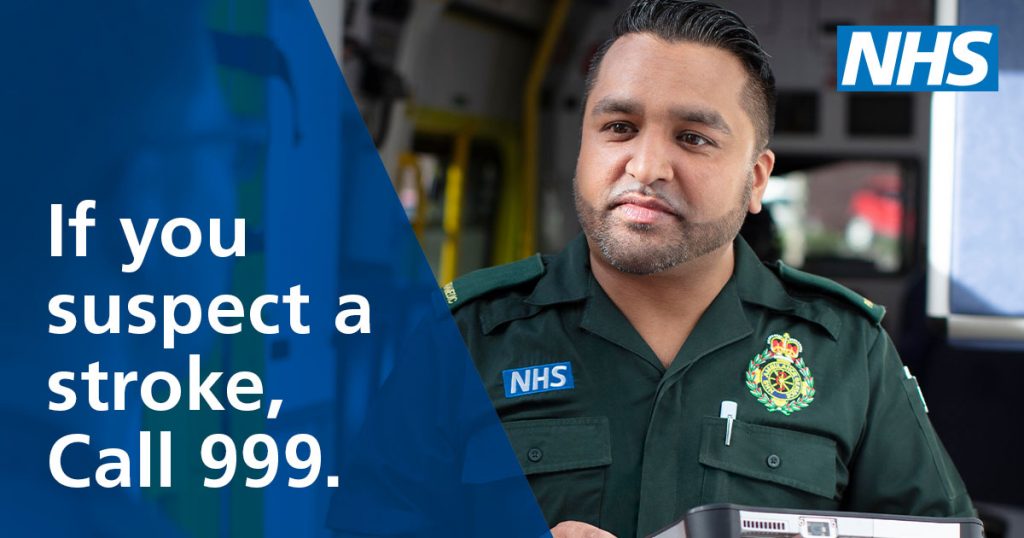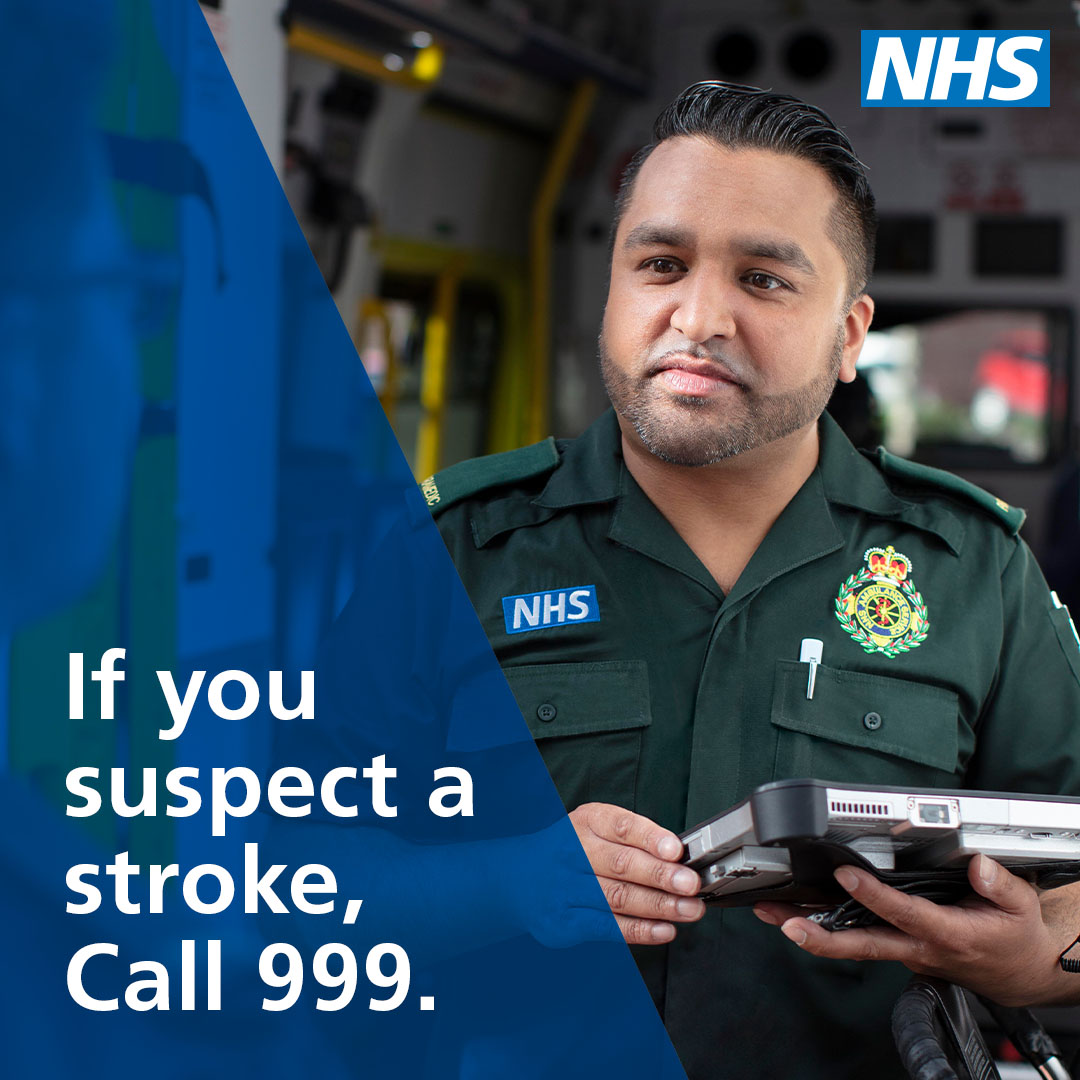Dave Sherwood, Assistant Director of Patient Care at South Central Ambulance Service NHS Foundation Trust, who had a Stroke in September 2017 shares his experience.
On the 14 September 2017, Assistant Director of Patient Care at SCAS, Dave Sherwood, started his normal day feeling fine and went to work. He soon had visual disturbances which turned into sickness after 30 minutes. He asked a colleague to check his blood pressure and found it was so high that one of our ambulance crews was requested to collect him from our Otterbourne office and take him to the Royal Hampshire County Hospital, Winchester. Within 5 minutes of arrival at hospital Dave felt a burning sensation in his head and a tingling heat sensation shot down the left side of his body, leaving him unable to speak, or move his arm.
TEST

“I felt the most vulnerable I have ever felt at any time in my life, something that will never leave me, from being a confident outgoing individual to not being able to talk or move in seconds and being fully aware of my surroundings. Quick treatment to remove the clot at the hospital meant I was discharged the following day, proving I could shave and get myself to a downstairs toilet.
My left arm needed physio to rebuild the strength but my left leg was very painful, like a tooth ache, and took at least five months to return to spontaneous movement. Recovery was hard; I spent two hours a day in the gym with a stroke rehabilitation trained gym instructor and Pilates classes to strengthen limbs and core”
Dave is now back at work full time and has full function, living a full and active life all thanks to the rapid treatment he received from his SCAS colleagues and the stroke team at Royal Hampshire County Hospital, Winchester.
“Apart from the emotional changes that are there to constantly remind me of my vulnerabilities, which is probably a good thing, I wish every stroke sufferer could have the same outcome as me and although I am proud to be a stroke survivor I feel guilty at times that I have recovered so well. If we can ensure a safe and quick response and limit the time on scene to get patients to the stroke units as quick as possible then I hope we can give all our patients the same chance I was given”
TEST
What is stroke?
TEST
A stroke is a serious life-threatening medical condition that happens when the blood supply to part of the brain is cut off.
Strokes are a medical emergency and urgent treatment is essential.
The sooner a person received treatment for a stroke, the less damage is likely to happen.
If you suspect that you or someone else is having a stroke, phone 999 immediately and ask for an ambulance.
TEST
Symptoms of stroke
TEST
The main symptoms of stroke can be remembered with the word FAST
- Face – the face may have dropped on one side, the person may not be able to smile, or their mouth or eye may have dropped
- Arms – the person with suspected stroke may not be able to lift both arms and keep them there because of weakness or numbness in one arm
- Speech – their speech may be slurred or garbled, or the person may not be able to talk at all despite appearing to be awake; they may also have problems understanding what you’re saying
- Time – it’s time to dial 999 immediately if you see any of these signs or symptoms
Find out more about stroke at nhs.uk/conditions/stroke/

